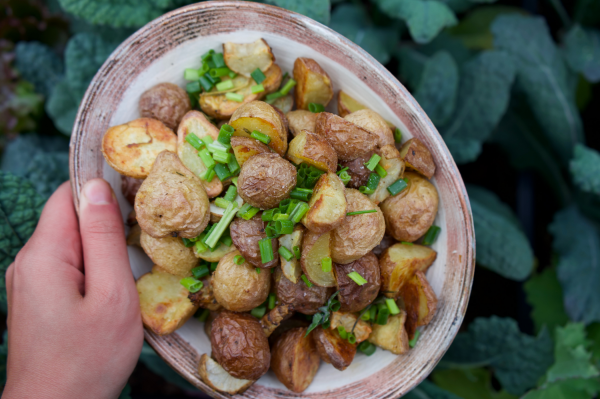
Over the years, carbohydrates have not gained a great reputation and low-carb diets such as the keto diet have become extremely popular due to the rapid weight loss that comes with them. But carbohydrates are not only delicious, they also provide your body with some of the most important nutrients it needs to stay healthy and can even help you maintain your weight…
Eating more resistant starch — a carbohydrate that fends off digestion — can make you feel more energetic, less stressed and full faster. It also helps stabilize your blood sugar level. In other words, maybe carbohydrates are not as unhealthy as we think… These are the 7 healthiest high-carb foods according to dieticians, so you should eat more often!
Read also :'10 myths about losing weight that you should definitely not believe'
Bananas are the richest source of resistant starch; ripe bananas contain 4.7 grams and less ripe (light green) bananas even contain 12.5 grams. They are also packed with fiber – 3 grams per medium banana – which makes you feel full faster after eating a banana and they contain tryptophan, an amino acid that is converted into the relaxing and happiness-boosting substance serotonin. Bring on those bananas, so!
Not only do potatoes contain fiber and starch, they are also a natural source of a natural substance that influences your hunger hormones and reduces your hunger. Potatoes are also very diverse, affordable and filling. FYI:Potatoes that have been boiled and cooled contain the most starch. This also applies to other foods that contain a lot of starch, such as pasta and rice. Mashed potatoes as a side dish, any one?
About half of the starch in beans comes from resistant starch. Beans and legumes, like lentils, contain a lot of fiber and vitamin B. In addition, they are the perfect substitute for meat as a protein source. Beans and legumes can also help lower your blood sugar, improve your cholesterol and keep your gut healthy.
Oat flakes contain a lot of soluble fiber called beta-glucan, which can help lower your cholesterol and blood sugar levels, boost your gut health and make you feel full faster. Oatmeal also contains many different strong antioxidants, including avenanthramides, which can help lower your blood pressure, promote circulation and reduce inflammation. We know who will be eating overnight oats for breakfast tomorrow morning…
Quinoa is a fiber-rich, fantastic plant-based source of protein:230 grams of cooked quinoa contains 8 grams of protein, plus half the recommended amount of fiber you need daily. Quinoa is gluten-free and contains all 9 essential amino acids that the body cannot produce on its own. In addition, it also contains a lot of vitamins B6 and C.
Brown rice is a whole grain that you digest more slowly than white rice, so it has a less severe effect on your blood sugar level. Eating brown rice instead of white rice can also lead to weight loss, a decrease in your Body Mass Index (BMI) and your body fat percentage. Sounds good, right?
Not only does barley contain 1.9 grams of resistant starch per 115 grams, it also contains a lot of soluble and insoluble fiber, so that you get less hungry and you continue to have regular bowel movements. Including barley as a regular ingredient in your diet could actually reduce your risk of chronic diseases, such as diabetes, heart disease and even some cancers. And even if that doesn't work, barley is a delicious addition to a nutritious meal!